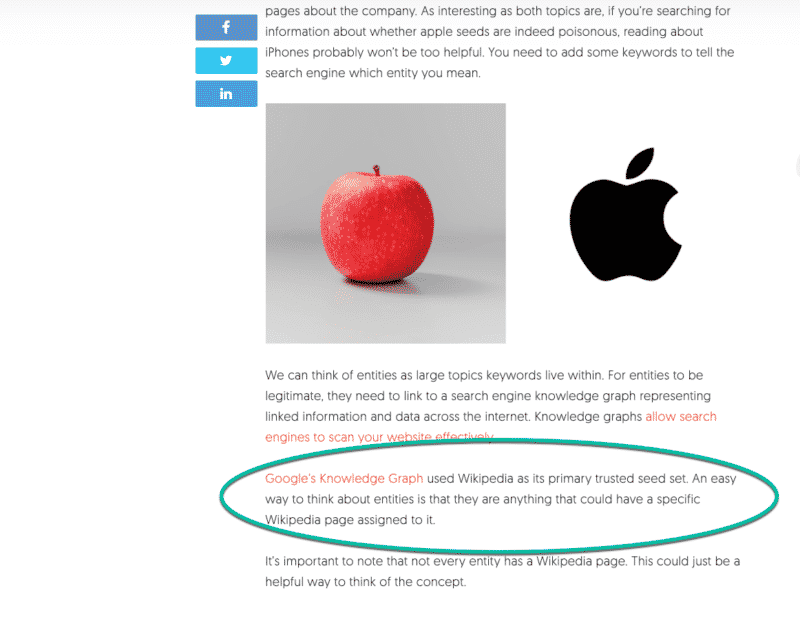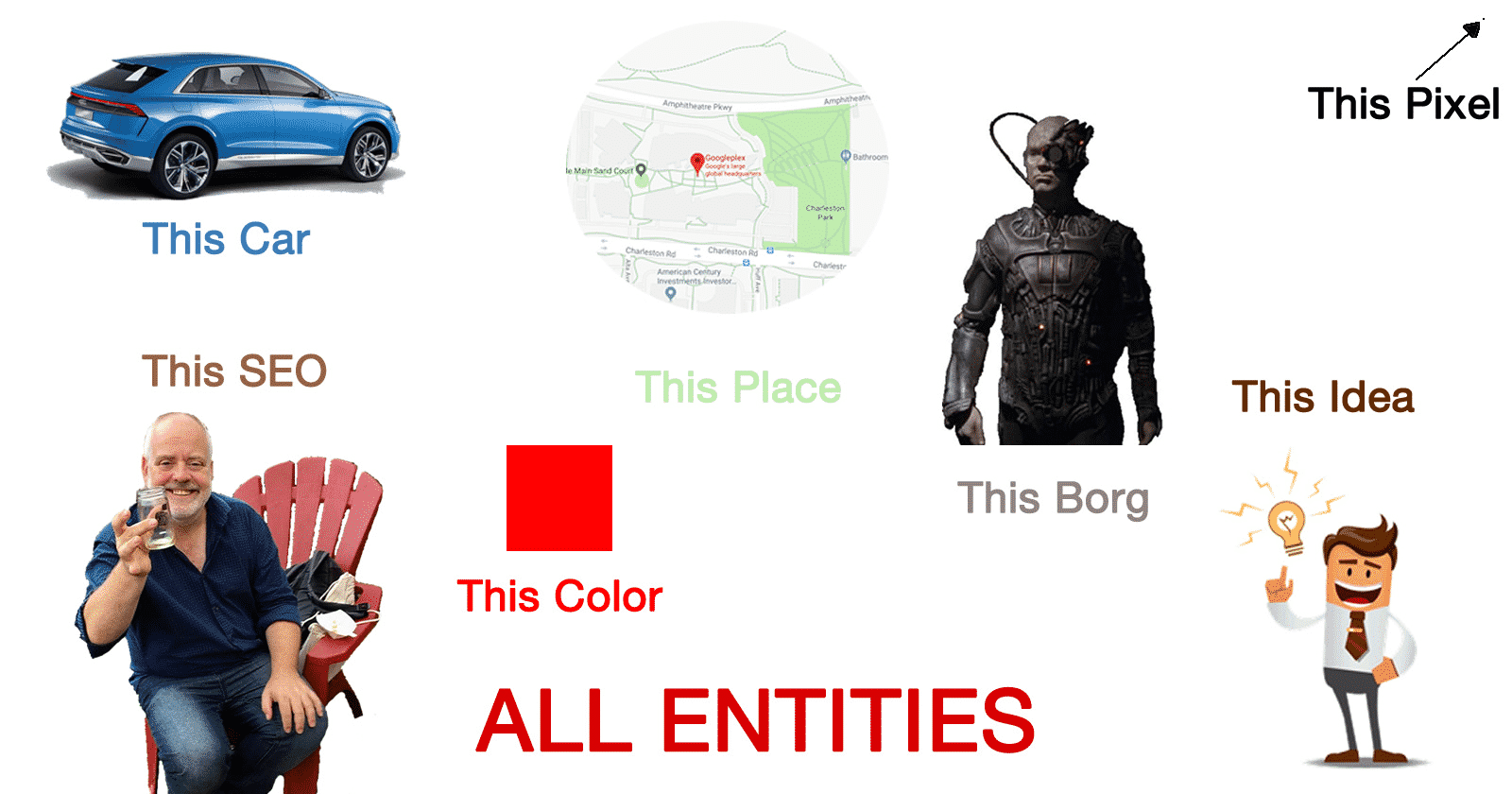As simplified by Neil Patel (https://neilpatel.com/blog/entity-based-seo/), entity SEO is “anything that could have a specific Wikipedia page about it.”

Now, of course, this doesn’t mean:
- make a wiki page about your brand (although they may want to do this as an established brand, it’s not part of any viable SEO strategy)
- make wiki pages about other related brand ideas/items.
What doing entity SEO entails in the case of most service-based businesses is:
- Brand association to top level terms/ideas
- Doing things like optimizing “______ services” pages will help to strengthen the “service” entity relationship to the brand.
- Creating citations strengthens the brand entity to be more closely related to its services entity.
- Structured data is the strongest signal and entity relationship builder because it provides links and maps relationships across content pages that specifically reference agreed-upon categorization in the schema.
- Creating supportive content for landing pages “strengthens” any “entity,” “idea,” or “concept” across all of the linked pages.
- Internal linking strengthens relationships between entities, e.g., specific services, and more closely relates the brand entity to these entities.
- Doing things like optimizing “______ services” pages will help to strengthen the “service” entity relationship to the brand.
So, by doing these things, we are doing entity-based SEO, but optimizing for entities is only a part of why this benefits the site. Therefore, search geeks rarely reference efforts as “entity SEO,” as building and strengthening entities create these patterns and consistencies across client sites.

